
Speaker: Venerable Jue Ji
Director of Xiang Yun Temple, Austin, Texas, U.S.A
The Buddhist lifestyle is neither to be sought after through fashion models, nor in vanity fairs.
It is a “home coming” feeling. You feel at home in Buddhism. You listen to Dharma talks; attend chanting services; hang out with Buddhist friends; visit Buddhist temples, etc. You have a sense of belonging, the affinity unifying you and others, like a piece of heavenly music. To be specific, as a Buddhist, you create a lifestyle that make you feel at home.
So, what makes you feel at home?
While a smart phone, an iPad, a notebook, and a huge number of followers in your social media may make you feel at home, it is temporary. Very soon you will feel at loss! Deep in mind, you want to be connected with the majority. You don’t want to be left alone. The digital devices and social media seem to connect you with others, but this connection is not reliable. Without the power of the mind, the virtual reality is just like bubbles, which is fictional and unreal. But we do live in a virtual reality world nowadays.

How to strengthen the power of your mind and feel at home when you are connected with the virtual world?
Harmony can empower your mind. Harmony connects you and the world.

For Buddhist monastic, there are “Six Points of Reverent Harmony” to follow when living in the Sangha Order.
1. Harmony in view through shared understanding
2. Moral harmony through sharing the same precepts
3. Economic Harmony through equal sharing
4. Mental Harmony through shared happiness
5. Verbal harmony through avoiding disputes
6. Physical harmony through living together
The first three points are applied in community cultivation, which include embracing the same value of life, following the same discipline, and sharing the profit. The latter three points are for individual cultivation in behavior, speech, mental activity. In fact, these six points also apply to the lay Buddhists. We all need to do good deeds, say good words, and think good thoughts. These are same as the latter three points of the “Six Points of Reverent Harmony.” At the same time, you all need to learn to practice the first three points of the “Six Points of Reverent Harmony” in order to live harmoniously in your community, such as your family, your colleagues, your friends, etc.
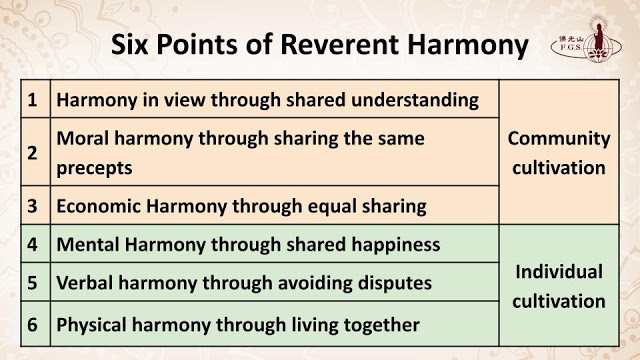
Let me tell you a story about a Buddhist monk who was not feeling at home when was practicing alone.
Once upon a time, the Buddha was giving a Dharma to heavenly beings, the king, the royals, and their retinues at Vulture’s Peak. Among the audience, there was a bhikkhu, who had a very strong and stubborn personality. Knowing this person’s characteristics, the Buddha sent him to a valley for practice. This valley was notorious for being demons residence. The Buddha instructed this bhikkhu to meditate under a tree and focus on breath as the meditation object. Through observing the long and short breaths, the meditator might concentrate his mind and detach excessive desires. Hopefully this bhikkhu would get rid of defilements and attain nibbana.
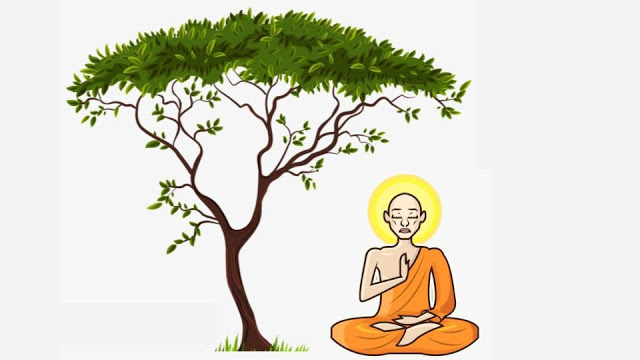
Upon arriving at the valley and preparing himself to meditate, he suddenly heard the sounds of demons’ talking to one another. As he could only hear their sounds, not see their forms, the bhikkhu was terrified and wanted to escape immediately.
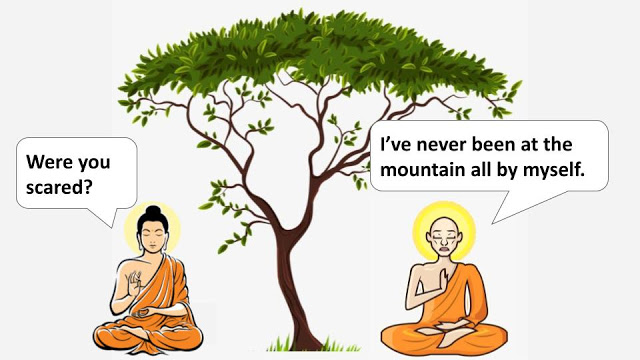
At that time, a wild elephant came nearby and lay down beside a big tree, thinking, “How joyful it is to get away from other elephants!” The Buddha knew what the elephant was thinking.
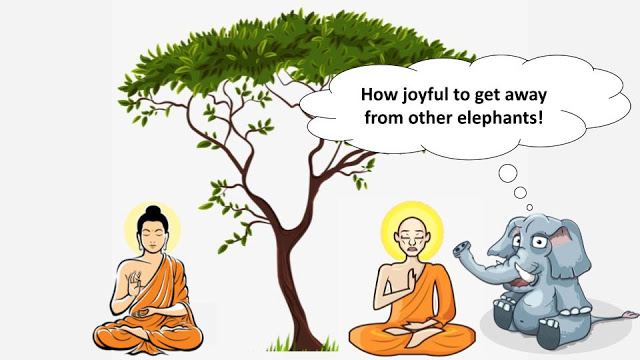
Then the Buddha asked the bhikkhu, “Do you know why the elephant came here?”
The Bhikkhu replied, “I don’t know.”
The Buddha told the Bhikkhu, “This elephant has a huge family of more than 500 big and small elephants. It is tired of handling this huge family, so it comes here to take a rest.”
The elephant was thinking, “How joyful it is to get out of the prison of my family bondage!”
The Buddha continued, “Even animals such as elephants know to seek a life of leisure and serenity. Not to mention that you are a monastic. When renouncing your household life, you were seeking the truth and vowed to liberate all beings. Now why do you seek companies when just starting your spiritual cultivation? Foolish companies would only do you harm. It’s rather that you practice by yourself. In practice alone here, there would be no one to gossip with, nor anyone to argue against. Then it would be easy for you to attain enlightenment.”
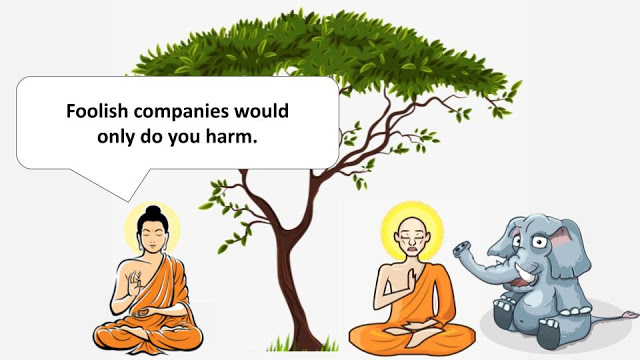
Having heard what the Buddha taught, the bhikkhu contemplated on the Buddha’s teaching, and soon he attained arhathood. The demons at this mountain also understood the Buddha’s teaching. They not only took refuge in the Buddha, but also abided by the admonishment of not hurting people.
In this story, the monk at first could not practice by himself. He didn’t feel at home when he meditated alone in the valley. He was annoyed by the demons. The Buddha made use of the elephant’s example to teach the bhikkhu that the calmness of the mind is not to be found with companies, especially harmful and ignorant people.
One needs to first be in harmony with oneself. And that harmony comes from the cultivation of meditation. We need to fight against our excessive desires, especially materialistic desires. We have to let go of competition with others, particularly the income we make, and the followers we have in social media.
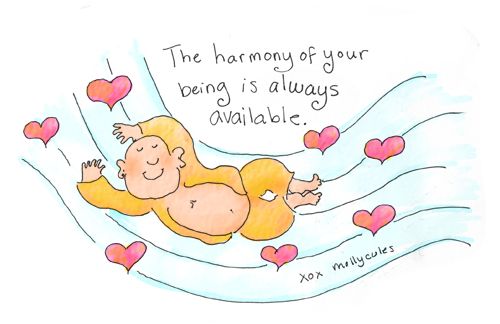
Mindful concentration helps us find harmony inside our mind and outside with others. This is a lifestyle that we Buddhist should quest. It takes courage to create this lifestyle. It takes perseverance to live on it.
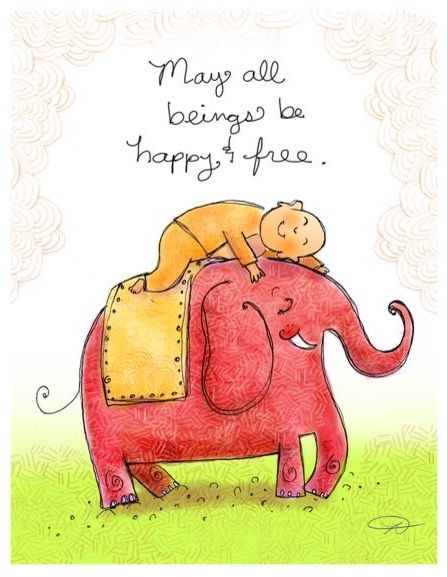
Are you still wondering what the best lifestyle is for you? In fact, your mind has a “blueprint” for you long, long time ago. You just need to unroll the “blueprint” and read it full heartedly. Practice the “Six Points of Reverent Harmony”. I’m sure that you will feel at home, a very harmonious HOME.

